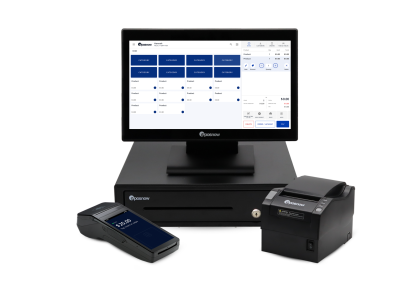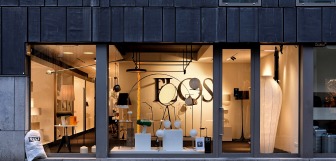Retail leasing: The Ultimate Guide for 2023
Have you ever wondered what goes into retail leasing? If you're a retail business owner or commercial real estate broker, chances are you've given it some thought. Retail leasing can be a complex process, but it's also an incredibly important one. After all, the right location can make or break a business.
In this ultimate guide to retail leasing, we'll cover everything you need to know about this topic in 2023. We'll start by defining retail leasing and discussing its importance in the modern economy. Then, we'll delve into the different types of retail leases and key terms you should be aware of. We'll also provide tips for negotiating and managing a retail lease, so you can make informed decisions that are best for your business.
Whether you're just starting out or you're a seasoned pro, this guide has something for everyone. So, let's dive in!
Types of retail leases
When it comes to retail leasing, there are several different types of leases to consider. Each type has its own set of terms and conditions, and it's important to understand the differences so you can choose the one that's right for you. Here are four common types of retail leases:
Gross lease:
In a gross lease, the new tenants pay a flat rate for rent, and the property owner covers all other expenses, such as taxes, insurance, and common area maintenance (CAM). This type of retail lease is often used for properties that are in good condition and don't require significant repairs or improvements.
Net lease:
In a net lease, the tenant is responsible for paying a portion of the property's operating expenses in addition to the rent. There are three subcategories of net leases: single net, double net, and triple net. In a single net lease, the tenant pays rent plus property taxes. In a double-net lease, the tenant pays rent, property taxes, and insurance. In a triple net lease, the tenant pays rent, property taxes, insurance, and CAM.
Percentage rent lease:
In a percentage rent, the tenant pays a base rent plus a percentage of their sales. This type of retail lease is often used in shopping malls and other high-traffic areas.
Modified gross lease:
A modified gross lease is a hybrid of a gross and net lease. The tenant pays a base rent plus a portion of the property's operating expenses. The exact terms of the lease will depend on the specific arrangement between both the landlord and tenant.
It's important to carefully review the terms of a retail lease before signing on the dotted line. Make sure you understand what is and isn't included in the rent, and be aware of any exclusions or limitations. This will help ensure that you're getting a fair deal and won't be blindsided by unexpected expenses down the line.
Key terms in a retail lease
In addition to understanding the different types of retail leases, it's also important to be familiar with some key terms that may come up during the leasing process. Here are a few key terms you should know:
- Rent: Rent is the amount of money paid by the tenant to the landlord in exchange for the use of the property. Rent is typically paid on a monthly basis.
- Common area maintenance (CAM): CAM refers to the expenses associated with maintaining common areas within a shopping center or other multi-tenant property. These expenses may include landscaping, cleaning, and maintenance of shared amenities such as restrooms and parking lots. In some retail leases, the tenant may be responsible for paying a portion of CAM fees.
- Tenant improvements: Tenant improvements refer to any changes or modifications made to the property by the tenant. These may include things like painting, installing new flooring, or building out a storefront. In some cases, the landlord may agree to pay for tenant improvements as part of the lease agreement.
- Subleasing: Subleasing occurs when a tenant rents out part or all of their leased space to another party. This may be done with the landlord's permission, but it's important to carefully review the terms of the original lease to ensure that subleasing is allowed.
- Renewal options: A renewal option gives the tenant the right to extend the lease beyond its initial term. These options may be included in the original lease agreement and will typically specify the terms and conditions of the renewal.
- Exclusive use clauses: An exclusive use clause gives a tenant the right to be the only business within a certain category (e.g., clothing store, coffee shop) within the shopping center or other multi-tenant property. These clauses can be helpful in protecting a business's market share, but they can also limit the landlord's ability to lease to other businesses within the same category.
It's important to carefully review and understand these terms when negotiating a retail lease. They can have a big impact on the overall cost and terms of the lease agreement.

The All-in-One Retail POS System
Thrive with online store options, payment processing, loyalty programs, inventory management, and a versatile retail POS system that meets your retail business needs, and more.
Negotiating a lease
Negotiating a retail lease can be a complex process, but it's an important step in securing a successful location for your business. Here are a few tips to keep in mind when negotiating a retail lease:
Determine the ideal location:
The location of your retail space is one of the most important factors to consider. Look for a location that is convenient for customers and has a good mix of foot traffic and visibility.
Assess the condition of the property:
It's important to carefully inspect the property before signing a lease. Look for any potential issues that may need to be addressed, such as structural damage or outdated systems. This can help you avoid unexpected expenses down the line.
Evaluate the landlord's reputation:
Research the landlord or property management company to get a sense of their reputation. Are they responsive to tenant needs? Do they have a history of maintaining the property in good condition?
Hire an attorney or real estate agent:
Consider hiring an attorney or real estate agent to assist with the leasing process. They can help you review the lease agreement and negotiate on your behalf.
Tips for managing retail leases
Once you've successfully negotiated and signed a retail lease, it's important to manage it effectively to ensure the success of your business. Here are a few tips for managing a lease:
- Maintain good communication with the landlord: Keep the lines of communication open with your landlord or property management company. Respond promptly to any requests or concerns they may have, and be proactive about addressing any issues that arise.
- Stay current on rent payments: It's important to make timely rent payments to avoid any potential issues with the landlord. Set up a system for tracking and paying rent to ensure that you don't miss any payments.
- Understand and comply with the terms of the lease: Carefully review the terms of the lease and make sure you are in compliance. This includes things like maintaining the property in good condition and using the space only for the purposes specified in the lease.
- Make necessary repairs and improvements: Keep the property in good condition by making necessary repairs and improvements. This can help protect your business and ensure that the space remains attractive to customers.
- Plan for the future: Consider factors like renewal options and subleasing as you plan for the future of your business. Having a clear plan in place can help you make informed decisions about your lease.
How can a retail POS system help?
In today's digital age, it's important for retail businesses to have a reliable and efficient payment processing system in place. A retail POS (point of sale) system can help streamline this process and provide a number of benefits for your business.
A retail POS system is a computerized system that is used to process sales transactions and manage inventory. It typically includes a cash register, credit card terminal, and other equipment for processing payments. In addition to handling transactions, a retail POS system can also track inventory, generate reports, and provide valuable data about customer behavior and sales trends.
One of the main benefits of a retail POS system is that it can speed up the payment process. Traditional cash registers can be slow and error-prone, while a POS system allows for quick and accurate transaction processing. This can help reduce customer wait times and improve the overall shopping experience.
In addition to improving payment processing, a retail POS system can also streamline inventory management. With real-time data on sales and inventory levels, businesses can make informed decisions about restocking and ordering. This can help reduce waste and improve efficiency.
Finally, a retail POS system can help businesses take advantage of payment processing services such as mobile payments and gift card integration. These services can provide additional convenience for customers and can help businesses stay competitive in today's market.
Final thoughts
In this ultimate guide to retail leasing, we've covered everything you need to know to navigate this complex process. From understanding the different types of retail leases and key terms to tips for negotiating and managing a lease, this guide has provided a wealth of information to help you make informed decisions.
We've also discussed the benefits of a retail POS system and how it can help streamline payment processing and improve inventory management. With these tools and strategies in your arsenal, you'll be well-equipped to secure the right location for your business and set it up for success.
Remember, retail leasing is an important process that requires careful planning and negotiation. By taking the time to research and understand your options, you can make informed decisions that are best for your business.
Want to know more about starting a retail business? Check out our blogs today:
